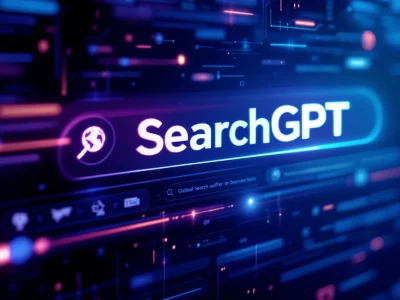Today, we’re off to discover these three search giants: Google Search, the must-have; Perplexity.ai, the AI search tool that relies on reliable and transparent sources; and the new SearchGPT, the conversational assistant ready to analyze your questions in depth with the most advanced LLMs on the market.
Each has its own style, strengths, and very specific use cases, in this article we help you discover which one is right for you.
Listen to the AI podcast :
In brief: Use cases
Each platform has its strengths depending on the type of search:
- ChatGPT Search is ideal for in-depth, context-sensitive searches.
- Google Search remains the best for source diversity and speed for keyword searches.
- Perplexity.ai offers a synthesized search experience, tailored to users who want a quick but structured answer, with reliable sources.
| Search engine | Main use cases |
|---|---|
| Google Search | – Quick search for facts – Access to a variety of sources – Search with advanced operators – Discover multimedia content – Compare products and shop |
| Perplexity.ai | – Search and exploration of verifiable sources – Synthesis of complex topics – Choice of information sources (focus) – Conversational search with follow-up – Discovery of trends and related topics |
| SearchGPT | – In-depth search with detailed explanations – Contextual and conversational search – Assisted writing and content search – Personal learning – Rapid synthesis for complex exploratory searches |
Google Search: The pillar of online search
Since its creation, Google Search has established itself as the world’s most widely used search engine. Its ability to index a massive quantity of web pages and deliver relevant results makes it an indispensable tool for millions of users.
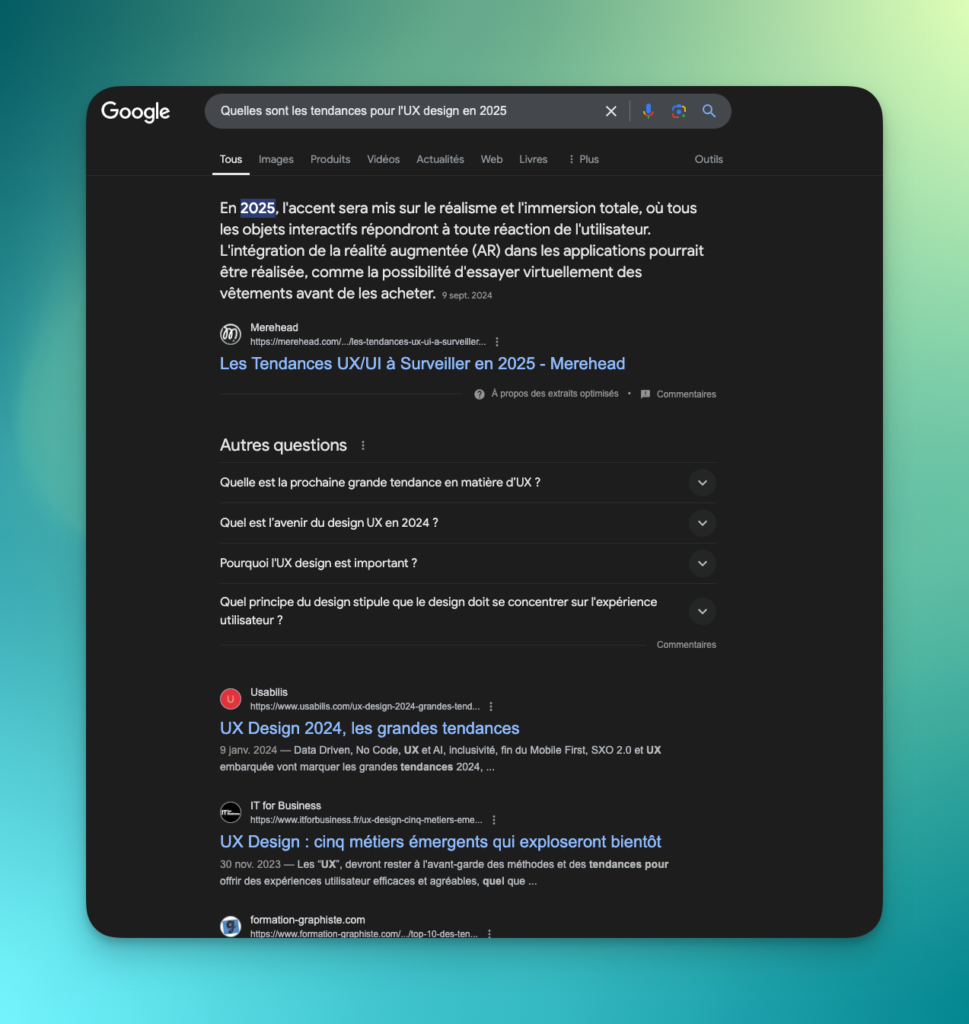
Searching with Google has several advantages
Quick search for basic facts or information
Google is ideal for quickly finding simple information like the weather, the time in another time zone, or definitions of terms.
The speed of its search and the organization of results mean you can get an answer in seconds.
Access to a wide variety of sources
If you’re looking for information from multiple perspectives (blogs, forums, scientific articles, news), Google offers comprehensive coverage and a diversity of sources to explore a topic in depth.
Academic or professional search with advanced search operators
Google lets you use operators (such as site:, filetype:, and quotation marks for exact searches) to refine results, which is very useful for researchers or professionals wishing to find specific sources or filter results.
Discovering multimedia content
With tabs for images, videos, news, and shopping, Google makes it easy to find multimedia content and explore visual content, which is useful for designers, content creators, and consumers.
Product comparison and e-commerce
Google offers features for comparing products, viewing user reviews, and accessing the best deals online, making it an engine of choice for shopping-related searches and product comparisons.
Key features
- Exhaustive source coverage: Google indexes a multitude of websites, offering an unrivalled diversity of results.
- Speed and relevance of results: Thanks to sophisticated algorithms, results are displayed instantly, often with great relevance.
- Advanced search functions: Search operators let you filter and refine queries for more precise results.
Google search highlights
- Exhaustive source coverage: Google Search remains unbeatable in terms of the diversity of indexed sources. It covers a wide range of sites, from blogs and forums to news sites, academic databases, and institutional pages, guaranteeing unrivalled comprehensiveness.
- Speed and relevance of results: Thanks to sophisticated ranking algorithms, Google delivers instant and often highly relevant results for keyword-based searches. This efficiency makes it perfect for fast searches where the user wants to access a large amount of information in a short time.
- Advanced search functions: Google offers a range of advanced search operators and filters (such as the use of quotation marks for exact phrases, exclusions, or searches such as “site:”, “filetype:”, etc.). These tools enable users to refine their searches precisely, especially useful for specific and technical searches.
- Google product integration: With features such as rich snippets, Google Maps, and results from services like YouTube or Google Images, Google Search offers an integrated, cross-platform experience that enriches search results and enhances discovery.
- Enriched results and snippet display: Google results often include enriched snippets, which can provide quick answers directly on the results page. These snippets give an immediate overview of the answer without requiring a click, which is an advantage for question-based searches.
- Targeted advertising and personalized recommendations: Google uses user data to personalize search results, based on history and preferences. Although this is sometimes perceived as intrusive, it can be an asset for users who want more relevant results.
Perplexity.ai: Conversational and structured search
Perplexity.ai is an artificial intelligence-based search engine designed to provide synthetic, structured answers to user queries.
It stands out for its conversational approach and its ability to cite the sources used.
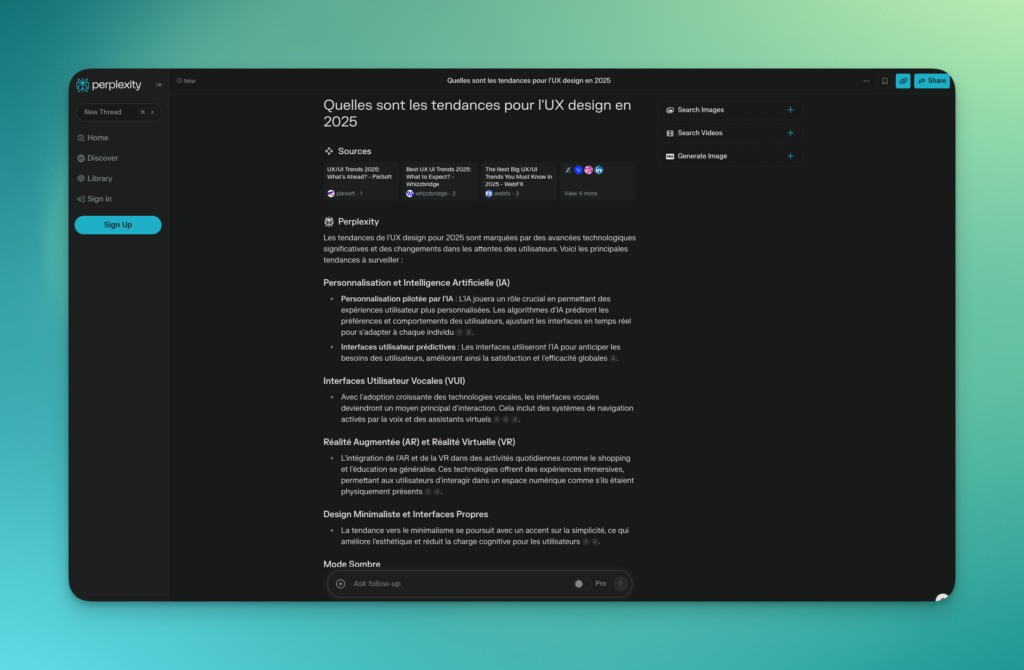
Key features
- Intuitive user interface: Clear presentation of answers with concise summaries and cited sources.
- Source selection: Ability for the user to choose which sources to include in responses, offering greater control over the reliability of information.
- Conversational approach: Ability to handle follow-up questions, enabling in-depth exploration of topics.
Perplexity.ai boosts results with AI
Exploratory research with verifiable sources
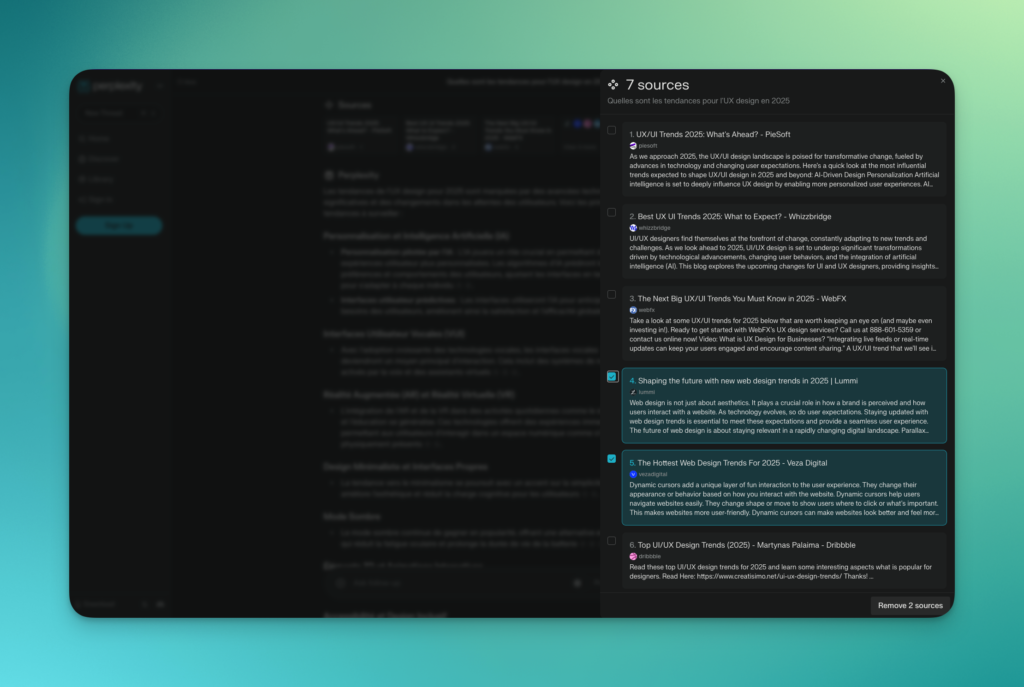
For users who want a synthesized answer with the option of checking sources, Perplexity.ai is ideal. For example, for academic or journalistic research where reliability is crucial, this platform offers quick access to sources.
Synthesis of complex topics
Perplexity is particularly suited to searches where the user wants a concise overview of a complex topic, such as technology trends or scientific concepts, without having to browse multiple sites.
Control of information sources
With the ability to choose sources for answers, Perplexity.ai allows users to prioritize certain types of content, for example scientific articles or specialized media, making this tool relevant for searches where credibility and rigor of sources are essential.
Conversational search with contextual tracking
Users who wish to explore a topic in depth with follow-up questions will find Perplexity.ai useful for its contextualized answers, which allow specific points to be dug up without restarting the search.
Search for trends and related topics
Perplexity’s functionality to suggest similar searches is ideal for users wishing to explore related topics or understand the broader context of a question.
Perplexity.ai search benefits
- Intuitive, structured interface: Perplexity.ai’s interface stands out for its clarity and organization. It offers a well-structured presentation of answers, often synthesized into concise paragraphs that make it easy to read and understand. This format is ideal for users looking for direct, well-organized answers.
- Possibility to choose sources: Perplexity.ai offers a unique feature allowing the user to select the sources used for the answer. This option gives users more control, allowing them to prioritize certain sources (such as academic articles, specialized blogs, or recognized media) to obtain answers that are more reliable or tailored to their needs.
- Conversational approach with follow-up options: By enabling follow-up questions and query refinement, Perplexity comes close to a conversational assistant while maintaining a level of structure. This flexibility allows users to dig deeper into certain topics without having to redo a full search.
- Source presentation and transparency: Sources are displayed clearly with direct links, guaranteeing transparency of information. This feature reassures users, as they can quickly check sources and assess their reliability, a point often overlooked in other search engines.
- Synthesizing and structuring information: Perplexity uses AI to generate well-organized summaries that capture the essence of information concisely. Answers are not limited to a simple list of links, but summarize key points, offering a more “informative” search experience than Google for exploratory searches.
- Focus on trends and similar searches: Perplexity also presents trends and similar searches, helping to contextualize the topic and discover related information. This helps users to explore a topic in greater depth or get a broader overview.
SearchGPT: integrated conversational assistant
SearchGPT is a feature developed by OpenAI, integrating the power of ChatGPT into online search.
It offers a conversational search experience, enabling users to obtain detailed, contextual answers.
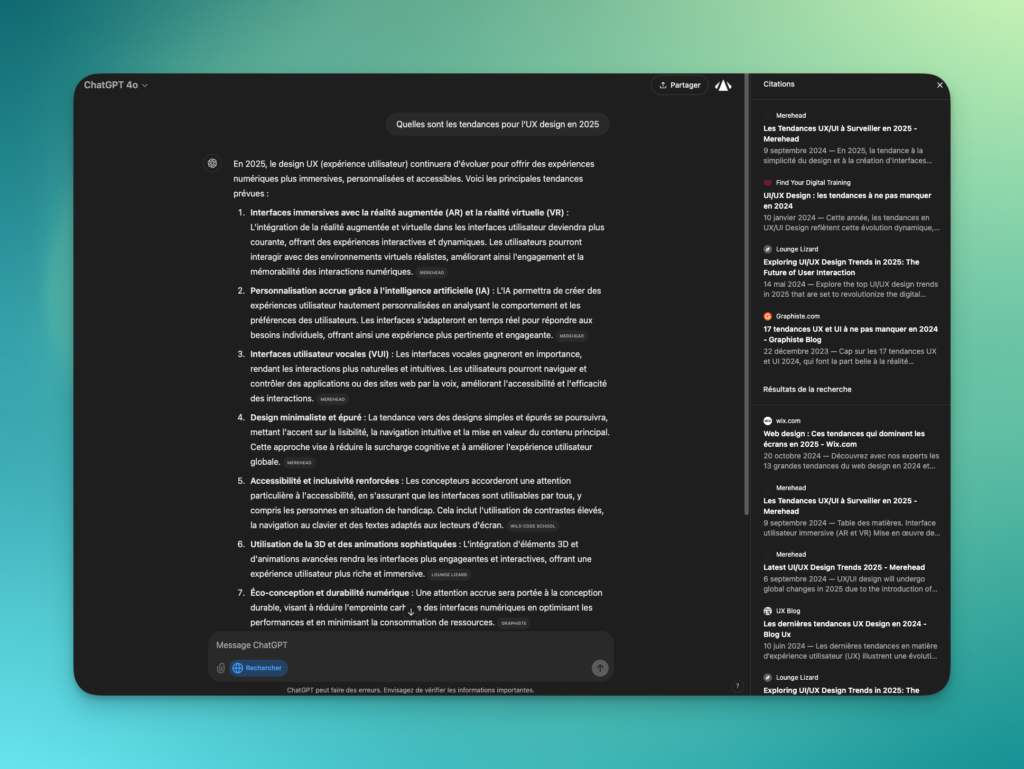
Key features
- Conversational interaction : Enables iterative dialogues, refining answers based on follow-up questions.
- Synthesis and analysis: Provides detailed answers, including in-depth explanations and analysis.
- Contextual personalization: Tailors responses based on the context of the conversation and previous queries.
Usage case for SearchGPT
In-depth search with need for detailed explanations
SearchGPT is perfect for topics that require in-depth understanding or detailed explanations, such as scientific concepts, historical analyses, or technical comparisons. It’s suitable for people looking for answers written in natural, detailed language.
Contextual and conversational search
Users who want natural interaction, as in a conversation with an expert, will find SearchGPT effective. It can respond iteratively, drawing on the context of previous questions to offer more personalized answers.
Assisted editing and content search
SearchGPT is ideal for content creators or writers looking for ideas, analysis, or summaries. Thanks to its explanatory answers and analytical capabilities, it can serve as a writing assistant.
Educational research or personal learning
Students or self-learners who want to learn concepts in a progressive, contextual way can use SearchGPT as a learning assistant, able to explain complex concepts in several steps and answer follow-up questions.
Time-saving for complex exploratory research
For topics that require multiple pieces of information to be researched and synthesized, SearchGPT offers ready-to-use answers that save users the trouble of scrolling through multiple pages. It’s ideal for those who want a quick, comprehensive overview without going through multiple sources.
SearchGPT highlights
- Conversational and iterative approach: SearchGPT enables users to have a conversational interaction, where each answer can be followed by a further question or clarification. This creates a more fluid and natural search experience, allowing in-depth exploration of a topic without relaunching new searches each time.
- Information synthesis and answer clarity: Thanks to its text generation engine, SearchGPT delivers answers that are already synthesized, organized and written in natural language. This feature is particularly useful for complex subjects or those requiring a detailed explanation, saving users from having to navigate between several pages to get the full picture.
- Contextual personalization of answers: SearchGPT adapts its answers according to the context of the conversation and previous questions. This ability to maintain the thread of the discussion makes searches more relevant, as the tool can provide information taking into account what has already been discussed, which is not the case with traditional search engines.
- Analytical and explanatory answers: Unlike search engines that primarily return links, SearchGPT can interpret, analyze, and provide in-depth answers. It is able to expand on topics, explain concepts, and even make comparisons or analyses, as if the user were interacting with an expert.
- Fast access to a large knowledge base: Thanks to its training on a vast amount of data, SearchGPT can provide answers to questions from a variety of fields, including specialized subjects. This allows users to obtain information without necessarily clicking on external links or reading full articles.
- Absence of advertising and sponsored links: SearchGPT does not offer advertising in its answers, which enhances the user experience by eliminating commercial distractions and making searching smoother and more enjoyable.
- Use of advanced generative AI models: Using GPT models, SearchGPT can produce answers with a high level of detail, precision, and consistency. This makes it possible to generate texts that appear natural and user-friendly, while covering specific points requested by the user.
- Time-saving for complex searches: SearchGPT is particularly effective for questions where users want a complete and immediate answer, such as trend summaries, concept explanations, or how-to guides. It eliminates the need to compile information from multiple sources.
Discover our article on SearchGPT and Perplexity: Perplexity or SearchGPT: Which will be your AI search engine in 2025?
Tips for AI-powered search
For users new to AI-powered search, here are a few tips for getting the most out of these new technologies:
Each search engine has its strengths and weaknesses. Use Google Search for fast, diverse searches, Perplexity.ai for structured summaries with reliable sources, and SearchGPT for detailed, contextual explanations.
Exploring advanced features: AI search engines offer advanced features such as conversational search and information synthesis. Don’t hesitate to ask follow-up questions and refine your queries to get more precise answers.
Check sources: Although AI-generated answers are often relevant, it’s crucial to check sources to ensure the reliability of the information. Use the source transparency features offered by tools like Perplexity.ai.
Customize searches: AI search engines often allow responses to be personalized according to the context of the conversation. Use this feature to get more relevant information tailored to your needs.
AI NEWSLETTER
Stay on top of AI with our Newsletter
Every month, AI news and our latest articles, delivered straight to your inbox.
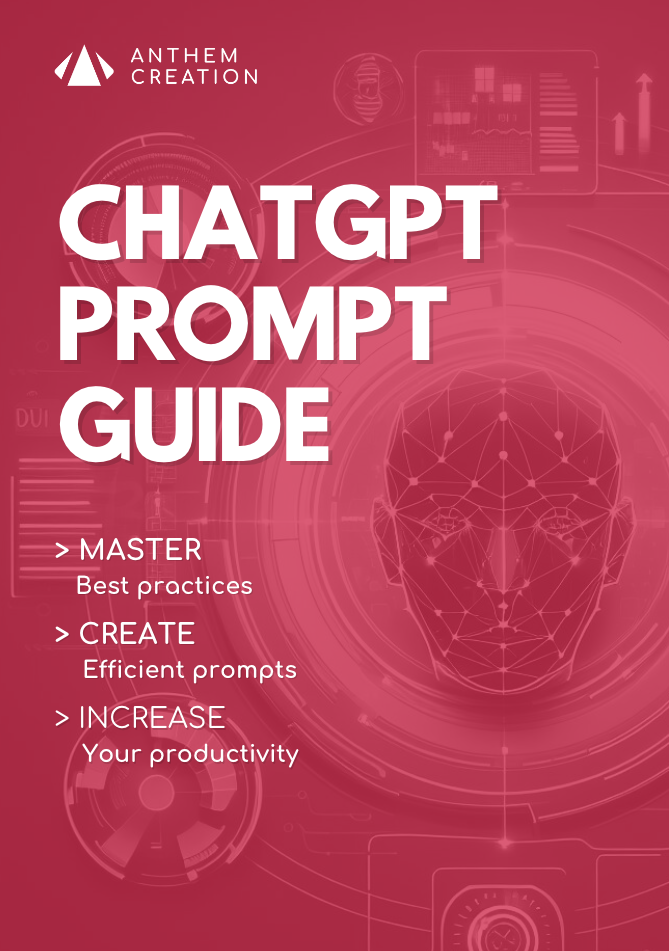
CHATGPT prompt guide (EDITION 2024)
Download our free PDF guide to crafting effective prompts with ChatGPT.
Designed for beginners, it provides you with the knowledge needed to structure your prompts and boost your productivity
With this ebook, you will:
✔ Master Best Practices
Understand how to structure your queries to get clear and precise answers.
✔ Create Effective Prompts
The rules for formulating your questions to receive the best possible responses.
✔ Boost Your Productivity
Simplify your daily tasks by leveraging ChatGPT’s features.
Similar posts
Will SearchGPT replace Google search?
By 2025, SearchGPT will be used by millions of people on a daily basis. Currently in the testing phase, this new tool developed by OpenAI has been designed to offer …
Perplexity Spaces : The feature that convinced us to upgrade to Premium
At Anthem Création, we hesitated for a long time to switch to Perplexity.ai’s Premium offer. We only needed access to the API for our automations, as the API works with …
Perplexity or SearchGPT: What will your AI search engine be in 2025?
The future of online search is bound to involve AI. Whether it’s Google, with the much-dreaded SGE update; Perplexity AI, which is already validating the value of generative AI-assisted search; …
